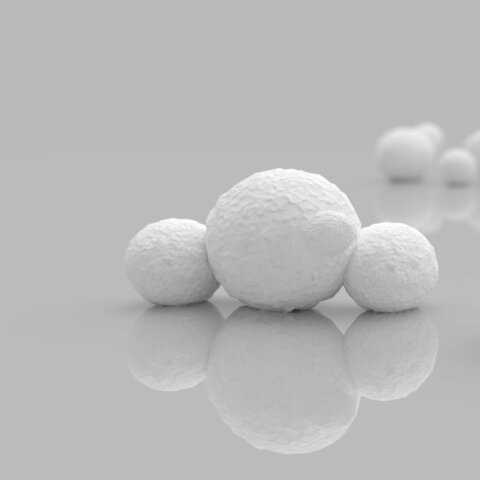Pichia pastoris – a highly versatile cell factory combining advantages of established expression systems
Pichia pastoris is an established, regulatory body approved (FDA, EMA/EFSA), safe (GRAS), and highly competitive expression host for secreted recombinant proteins. Today, a large number of commercial recombinant protein products with various applications in different industries are produced with Pichia.
The yeast P. pastoris (also known as Komagataella phaffii) combines the advantages of prokaryotes, such as easy genetic manipulation and fast growth on inexpensive and chemically defined media, with eukaryotic features such as a subcellular protein processing machinery needed for post-translational modification. Compared to bacterial systems no cell lysis and tedious isolation from crude lysate, or refolding from inclusion bodies, is required to obtain the target protein. This minimizes the probability of unwanted enzymatic side activities. In contrast to laborious, expensive and time-consuming mammalian cell line generation, the generation of stable Pichia cell lines is straightforward.
In comparison to other yeast systems, Pichia actively and effectively secretes recombinant target proteins into the culture supernatant with an exceptionally low amount of extracellular endogenous proteins. This furnishes a raw product with high purity, simplifying downstream processing requirements. Thus, Pichia not only enables cultivation processes with high volumetric productivity but also renders manufacturing of recombinant proteins even more economically viable.
